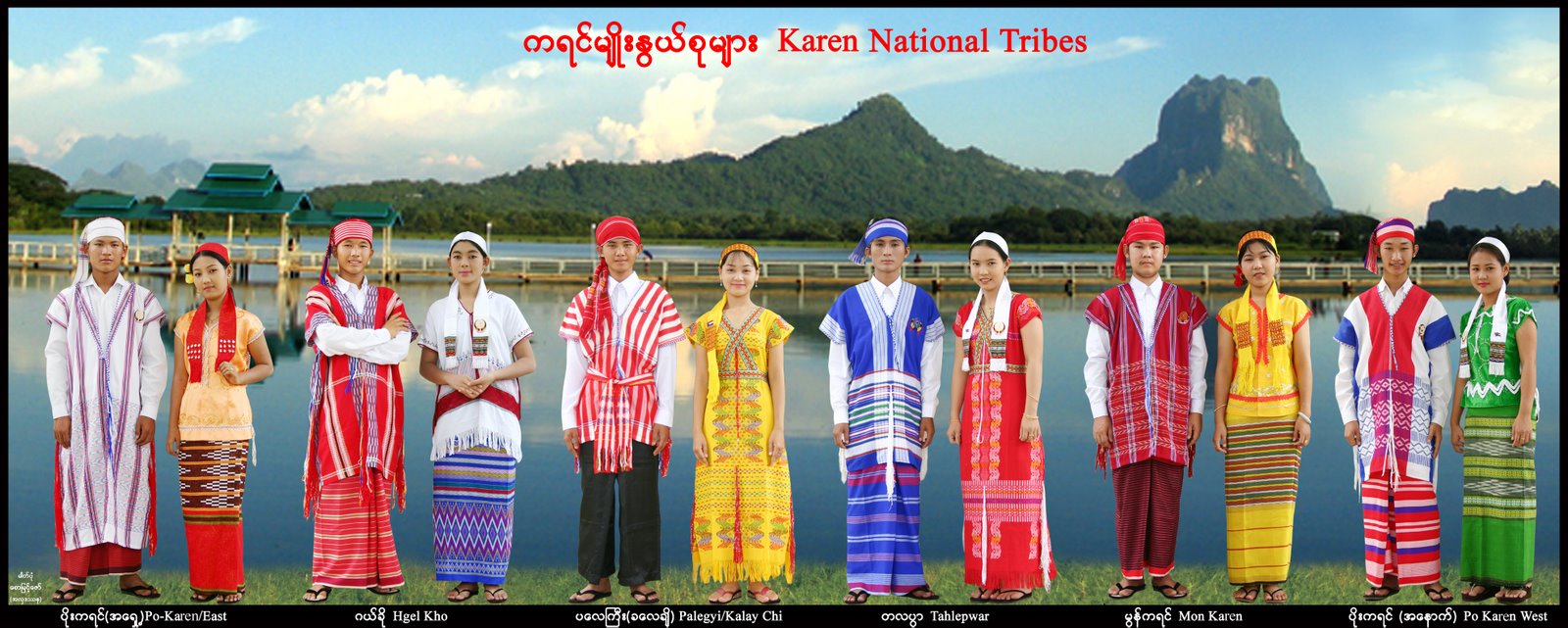Karen need of blessing
Sanitsuda Ekachai The young Karen girl in her late teens looked quite traditional in her long dress of machine-woven cloth sporting a Karen design. But the spaghetti straps would have left her mother horrified. Back in her village home in Burma, her mother would never, never let the girl leave home wearing such a dress which audaciously showed off her glowing, youthful shoulders. But like thousands of Karen migrant workers who gathered for their annual spirit-calling ceremony in Nakhon Pathom recently, the teenage girl had no time to worry about mum frowning. It was time to lighten up and feel reassured that they were not all alone far from home. Traditionally, the young Karen who left their villages to work would return home to receive blessings from their elders in the full moon night of the lunar month, when the elders would perform the wrist-tying ceremony to strengthen the village boys' and girls' guardian spirits and to shoo away bad luck. The ceremony is common to ethnic Karen on both sides of the Thai-Burma border. It is believed that when one is shocked or distressed, the bad experience chases one's guardian spirit away, making one even more vulnerable to bad luck. It is then important to perform a ceremony to call the guardian spirit back to its seat on top of the head. For those who cannot return home, attending the spirit-calling ceremony in town is equally effective. When the Karen peasants who fled persecution in Burma to toil in often slave-like work conditions in Thailand, heard that the forest elders would preside at the sacred ceremony in Nakhon Pathom, they travelled by the busload from factories in various provinces for the much-needed blessings. ``It's the power of culture and ceremony,'' said Tiwa Kongnandee, a Thai Karen who organised the event, now in its 13th year. ``After observing their own traditions and having good fun at the festival with their friends, they feel refreshed and strong enough to face life's difficulties again.'' The ritual does not only boost morale, but also identity awareness. Living and working in a hostile land where migrant workers are often dehumanised, the ceremony reassures the ethnic Karen about who they are. This renewed sense of belonging to a group makes them feel psychologically safe. That is why the migrant workers, all in their youth, proudly turned up in their traditional-looking Karen outfits for the day. ``Being here has made me feel secure in who I am,'' said Onee, 29, a worker in Samut Songkram. The rapture magically helped them forget their misery for a day. For the indigenous Karen on Thai soil, many suffer the lack of citizenship which robs them of all basic legal rights while subjecting them to constant deportation threats. Even for those with citizenship, they are maliciously stereotyped as forest destroyers who must also be evicted from their forest homes. For the Karen migrant workers from Burma, many end up in sweat shops, working in slave-like conditions. Forget minimum wage, overtime and work safety. Forget making demands, because to be sacked means immediately losing the right to work in Thailand legally. Having no opportunities in life, many girls are lured or forced into the flesh trade. Being young, financially independent, far from parents' surveillance _ and lacking the power to negotiate for safe sex from their partners, many end up becoming HIV-positive. Abortion is a common tragedy, which takes many young mothers' lives. Even a simple social activity such as attending the traditional spirit-calling ceremony is a risky business. Since migrant workers are not allowed to go outside their designated work neighbourhoods, they could easily face arrest and extortion on their journeys. When Thai workers were abused in Taiwan, they protested violently and their voices were heard, said Tiwa. Migrant workers in Thailand don't even have the right to have recreation with a sense of safety. For Toleh, 19, a factory worker in Omnoi, Nakhon Pathom, such fears did not stop him. ``Life is very tough here,'' he said. ``We need all the blessings we can get.''
Sunday, December 14, 2008
Subscribe to:
Post Comments (Atom)


No comments:
Post a Comment